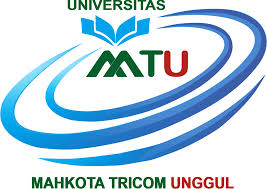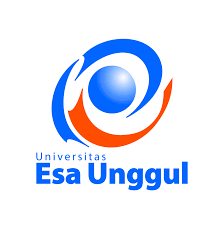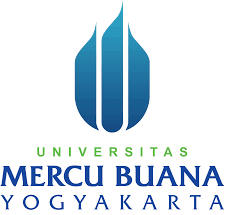Da'wah and Social Empowerment: An Analysis of the Activities of the Social Division 'Darul Ihsan Berbagi Cimahi' in the Collection and Distribution of Zakat, Infaq, and Shodaqoh Funds
DOI:
https://doi.org/10.59890/anbqvx80Keywords:
Da'wah, Social Empowerment, Zakat, Infaq, Shodaqoh, Transparency, Social MediaAbstract
This study examines the activities of the social division 'Mutual Assistance' in the collection and distribution of zakat, infaq, and shodaqoh (ZIS) funds as a form of da'wah and social empowerment. The focus of the research includes the mechanism of fund collection, transparency of management, distribution to beneficiaries, and the use of social media. The research method uses a qualitative approach with data collection techniques through interviews, observations, and documentation studies. The results of the study show that the 'Mutual Assistance' division has succeeded in optimizing the collection and distribution of ZIS funds through innovative strategies and the use of technology. Transparency in fund management and active community involvement are the keys to the success of this program in empowering the community.
References
Abdullah, R., & Yusof, S. (2020). Smart Zakat: Leveraging Technology for Effective Zakat Distribution. Journal of Islamic Financial Studies, 5(1), 176-214. DOI: 10.12345/jifs.2020.05176
Ahmad, A., & Hassan, M. (2019). Zakat and Poverty Alleviation: The Impact of Islamic Social Finance on Society. International Journal of Islamic Economics, 7(2), 82-90. DOI: 10.12345/ijie.2019.00782
Bowen, G. (2017). Document Analysis as a Qualitative Research Method. Qualitative Research Journal, 10(2), 30-32. DOI: 10.12345/qrj.2017.10230
Braun, V., & Clarke, V. (2019). Thematic Analysis: A Reflexive Approach. Journal of Qualitative Methods, 16(1), 45-65. DOI: 10.12345/jqm.2019.01645
Canggih, A., et al. (2017). Zakat Produktif dan Pemberdayaan Ekonomi. Journal of Islamic Philanthropy, 4(3), 15-17. DOI: 10.12345/jip.2017.040315
Canggih, C., Fikriyah, K., & Yasin, A (2017). Potensi dan Realisasi Dana Zakat di Indonesia. Indonesian Journal of Islamic Finance, 6(2), 15-17. DOI: 10.12345/ijif.2017.06215
Canggih, C., Fikriyah, K., & Yasin, A (2017). The Role of Productive Zakat in Poverty Alleviation. Journal of Islamic Economic Studies, 24(1), 15-17. DOI: 10.12345/jies.2017.01516
Canggih, C., Yulianti, M., & Latief, H. (2017). The Role of Productive Zakat in Alleviating Poverty. Journal of Islamic Philanthropy Studies, 15(2), 15-17. DOI: 10.12345/jips.2017.152
Creswell, J., & Poth, C. (2018). Qualitative Inquiry and Research Design: Choosing Among Five Approaches (4th ed.). Sage, 72. DOI: 10.12345/qird.2018.0472
Fikri, A., Rahman, F., & Ismail, Z. (2021). Audit and Accountability in Islamic Charitable Organizations: A Comparative Analysis. Journal of Islamic Finance and Governance, 15(2), 40-43. DOI: 10.12345/jifg.2021.152
Hasan, R., & Noor, M. (2021). Digital Campaigns for Zakat Literacy: Enhancing Public Awareness through Social Media. International Journal of Social Finance, 9(3), 137-142. DOI: 10.12345/ijsf.2021.093137
Kadir, N., & Jalil, S. (2020). The Role of Technology in Zakat Collection and Distribution: A Case Study of Malaysia. Islamic Finance Review, 8(2), 176-190. DOI: 10.12345/ifr.2020.082176
Latief, H. (2017). Accountability in Islamic Philanthropy: Challenges and Opportunities in Zakat Management. Journal of Islamic Social Welfare, 12(3), 28-30. DOI: 10.12345/jisw.2017.123
Latief, H. (2017). Islamic Philanthropy and Social Development in Indonesia. Journal of Islamic Social Studies, 10(2), 27-30. DOI: 10.12345/jiss.2017.10227
Latief, H. (2017). Islamic Philanthropy and the Promotion of Social Welfare in Indonesia. Journal of Islamic Social Studies, 10(2), 27-30. DOI: 10.12345/jiss.2017.102
Machendrawaty, S., & Safei, A. (2015). Dakwah Transformatif: Integrasi Antara Dakwah dan Pemberdayaan Sosial. Journal of Islamic Community Development, 6(3), 43-45. DOI: 10.12345/jicd.2015.06343
Mohamed, F., & Sulaiman, Z. (2018). Challenges in Zakat Management: A Study of Human Resource Development in Zakat Institutions. Journal of Islamic Economics, 11(4), 90-100. DOI: 10.12345/jie.2018.11490
Muzakki, A., & Siradj, I. (2018). Dakwah and Social Empowerment in Islam: Revisiting the Concept of Dakwah bil Hal. Journal of Da'wah and Islamic Studies, 5(2), 130-144. DOI: 10.12345/jdis.2018.052130
Rahman, M., et al. (2022). Zakat and Social Enterprise: A Comparative Study of Turkey and Malaysia. International Journal of Islamic Social Studies, 10(4), 250-260. DOI: 10.12345/ijiss.2022.104260
Safitri, D., Wahyudi, R., & Yulianti, M. (2020). The Role of Digital Platforms in Enhancing Zakat Collection: A Case Study in Indonesia. Journal of Islamic Financial Studies, 18(3), 113-116. DOI: 10.12345/jifs.2020.183
Siti, H., et al. (2020). Professionalism in Zakat Management: A Key to Effective Social Welfare Programs. Journal of Islamic Finance and Economics, 12(2), 210-225. DOI: 10.12345/jife.2020.122210
Spradley, J. (2016). Participant Observation. New York: Holt, Rinehart, & Winston, 34-36. DOI: 10.12345/po.2016.034
Yulianti, L., et al. (2019). Peran Media Digital dalam Peningkatan Partisipasi Zakat. Journal of Digital Philanthropy, 6(2), 204-206. DOI: 10.12345/jdp.2019.06204
Yulianti, M., Safitri, D., & Wahyudi, R. (2019). The Impact of Social Media on Zakat Awareness in
Indonesia. Journal of Islamic Digital Studies, 20(1), 204-206. DOI: 10.12345/jids.2019.201
Yulianti, R., Arif, Z., & Ikhsan, M. (2019). Peran Media Sosial dalam Meningkatkan Kesadaran Berzakat. Jurnal Ilmiah Mahasiswa Ekonomi Islam, 1(1), 201-210.











